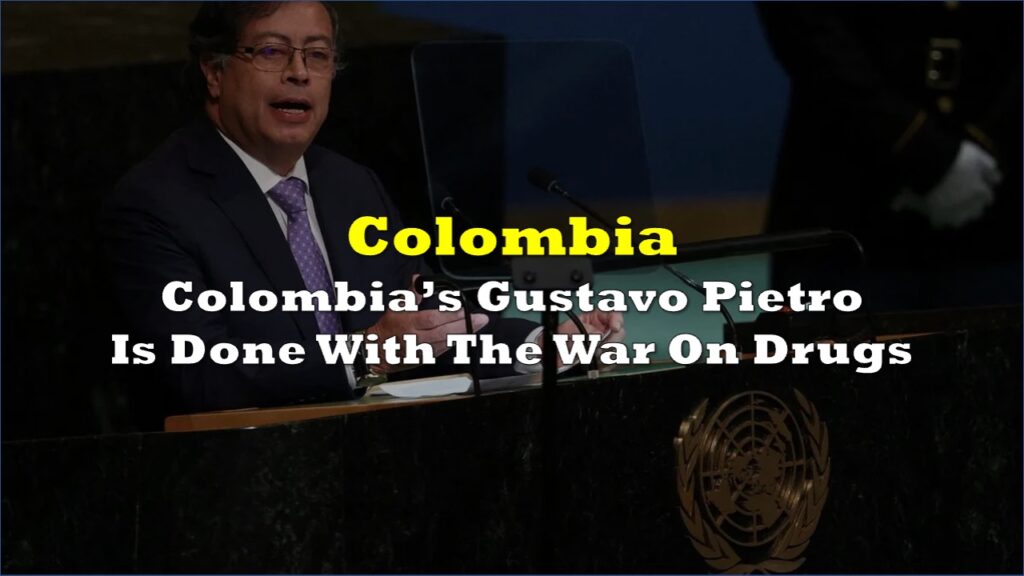Government officials gathered in Neiva yesterday to unveil a groundbreaking initiative aimed at transforming Colombia’s drug policy. Led by the Minister of Agriculture, Jhenifer Mojica, the event marked the introduction of the ‘Alliance for the Implementation of the Uses of the Coca Leaf in the Transition to Licitan Economies’.
Joined by representatives from the United Nations Office on Drugs and Crime for the Andean Region, the Colombian Agricultural Institute (ICA), and the Ministries of Justice and Health, Mojica addressed the community, emphasizing a shift towards sustainable, licit economies.
¡Ponemos en la agenda de Colombia 🇨🇴 la transición hacia economías para la vida! 🫰🌿
— Min. de Agricultura (@MinAgricultura) March 2, 2024
Dejamos de atacar la mata de coca 🌱 para empezar hablar del uso de fertilizantes orgánicos a base de ella. Haremos de la agricultura una cosecha de paz 🕊️ y justicia social. El… pic.twitter.com/hFnrZgFFoJ
“We came from an anti-drug fight focused on attacking the bush and obsessed with measuring attacked crops. There is a burden of fear and distrust against change,” Mojica stated, underscoring the need for a departure from traditional approaches.
Highlighting the failures of historic drug policies, Mojica stressed the adverse environmental and social impacts, including deforestation and public health crises. “The problem of illicit drugs is a public health issue that has been transferred to indigenous communities,” she remarked, acknowledging the urgent need for change.
#BoletínDePrensa 🚨| Con la alianza para la implementación de los usos de la hoja de coca 🌿 en economías lícitas, haremos un campo para la vida. 🫰 Desde #Neiva, reiteramos nuestro compromiso en la consolidación de la nueva 📝 política antidrogas del #GobiernoDelCambio. ¡Estamos… pic.twitter.com/tCKN4wqxYt
— Min. de Agricultura (@MinAgricultura) March 2, 2024
Central to the new policy is the utilization of coca leaf derivatives for licit purposes, such as organic fertilizers. Mojica emphasized community involvement in decision-making processes, indicating a departure from top-down approaches.
Juan Fernando Roa, the general manager of the ICA, echoed Mojica’s sentiments, affirming the institute’s commitment to supporting the transformation of coca leaf into viable industrial products. “With the collection and collection of the coca leaf as raw material for these inputs, we contribute to the production of food and take a step for the construction and transformation of the territories and the consolidation of total peace,” Roa stated.
The initiative marks a significant milestone in Colombia’s efforts to combat illicit economies, with the first registration of organic fertilizer containing coca leaf composition granted by the ICA last year. Indigenous communities, represented by Julio Piñacué, expressed optimism about their role in shaping the country’s future.
“The Indians want to contribute from our knowledge. We hope that during this government they will let us show that we can work with the peasants, the blacks, the cities and even the gringos,” Piñacué remarked.
Decocainized coca
In a country plagued by draconian measures, significant strides in de-stigmatizing certain substances and plants for beneficial purposes have been made. One such firm, Power Leaves Corp, specializes in manufacturing decocainized coca leaf extract. The manufacturer recently announced in October the initiation of revenue generation following the successful delivery of its inaugural commercial shipments.
The Colombian-based company said they completed the delivery of their first three shipments of coca essence and decocainized coca extract during the third quarter of last year. The delivered products are part of previously disclosed supply agreements, including a contract to supply up to US$2.75 million worth of products to a Canadian food and beverage company over a two-year period.
These extracts are anticipated to be utilized for product development, as well as for the production of finished beverage items destined for North American markets.
Coca leaves can legally be used to produce various products, particularly in countries where coca cultivation is legal for certain purposes. The leaves contain alkaloids like cocaine and others with potential medicinal properties. Decocainized coca leaf extracts are used in pharmaceuticals for their stimulant, analgesic, and appetite-suppressing effects.
The leaves are rich in nutrients like vitamins, minerals, and amino acids. Nutritional supplements derived from coca leaves are used to boost energy levels and promote overall health.
Coca leaf tea is also a traditional beverage in South America known for its stimulant and medicinal properties. It’s legally sold and consumed in countries like Peru and Bolivia. Additionally, coca leaf extracts can be used in the production of energy drinks and herbal beverages.
Some locations and manufacturers use coca leaf extracts in cosmetics and skincare products for their antioxidant properties and potential benefits for skin health.
Information for this briefing was found via La Nacion and the sources mentioned. The author has no securities or affiliations related to the organizations discussed. Not a recommendation to buy or sell. Always do additional research and consult a professional before purchasing a security. The author holds no licenses.









